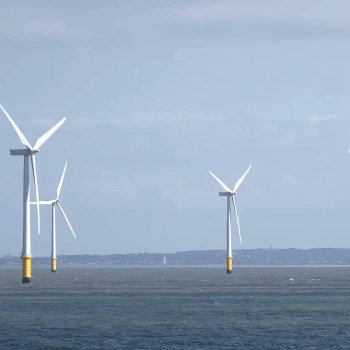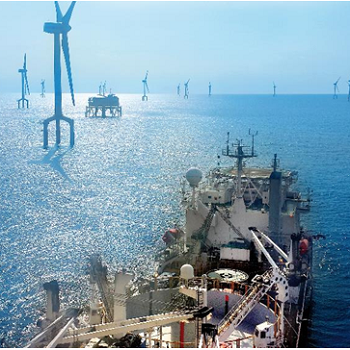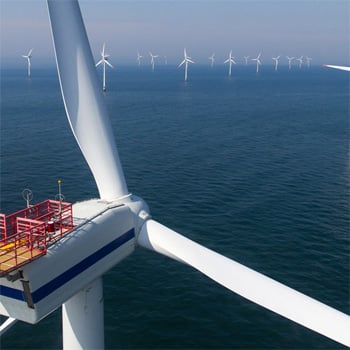People and ESG policies in Prysmian Group

Fabrizio Rutschmann, Prysmian Group Chief HR Officer - an interview from ETicaNews.it
The proper management of human resources is one of the sustainability standards of a business, but also a key factor in promoting all other ESG aspects. How does HR influence the environmental, social and governance-related factors and risks?
Prysmian decided to show its commitment towards sustainability starting from its head office. Two years ago, we built our new HQ in Milan guided by sustainability principles. Top of the list came energy conservation: thanks to the technologies used in the new building, we are currently saving 40% on energy, with a view to saving 60% once it is fully operational. It is a highly digitised environment: a laptop is provided for every employee and all meeting rooms are equipped with a wireless screen, thus very significantly reducing the use of paper-based documents. Disposable plastic has also been banned: soon we will introduce reusable coffee cups, and the whole building will become 100% plastic-free. To encourage our people to reduce use of their private cars we have offered to everyone free season tickets on the local public transport (Trenord trains and ATM services). Around 40% of out HQ employees has now switched to public transport. Another issue on which we have focussed our efforts is remote working. We launched a pilot project a couple of years ago, and now we are expanding this option to include all employees. The goal is to improve the work-life balance, which includes promoting more flexible working hours. All these initiatives only account for a fraction of what needs to be done. We have 112 plants around the world and we are working to improve conditions everywhere. Concrete measures implemented by the head office, however, exert a strong influence on the sustainability culture of employees: working for a company where concrete steps are taken in this direction helps motivate and stimulate people into acquiring a certain culture, a sustainable mindset.
Prysmian ha deciso di testimoniare il suo impegno verso la sostenibilità a partire dal suo head office. Due anni fa abbiamo realizzato la nostra nuova sede, a Milano, ispirandoci ai principi della sostenibilità. In primis il risparmio energetico: grazie alle tecnologie del nuovo edificio risparmiamo già oggi il 40% di energia, e a regime arriveremo al 60%. È un ambiente fortemente digitale, tutti i dipendenti hanno a disposizione un portatile e tutte le sale riunioni sono dotate di uno schermo wireless, in questo modo abbiamo ridotto moltissimo l’uso di documenti cartacei. Anche la plastica usa e getta è stata bandita: fra poco introdurremo bicchieri riutilizzabili per il caffè, e l’intero edificio sarà 100% plastic free. Per incentivare le persone a ridurre l’utilizzo dell’auto privata, abbiamo offerto a tutti un abbonamento gratuito ai mezzi Trenord e Atm. Un 40% dei dipendenti del nostro headquarter si muove ora tramite i trasporti pubblici. Un altro tema su cui abbiamo puntato molto è il remote working, iniziato a livello sperimentale un paio di anni fa e ora in fase di estensione a tutti i dipendenti. L’obiettivo è migliorare l’equilibrio fra vita privata e vita professionale, incentivando anche la flessibilità dell’orario di lavoro. Tutte queste iniziative incidono chiaramente per una piccola parte, abbiamo 112 stabilimenti nel mondo e stiamo lavorando per migliorarci ovunque. Le azioni concrete che partono dall’head office hanno però un impatto molto forte sulla cultura di sostenibilità dei dipendenti: lavorare in un’azienda che agisce concretamente in questa direzione fa sì che le persone siano motivate e stimolate a sviluppare una certa cultura, un modo di pensare sostenibile.
Besides the initiatives undertaken in the new Headquarters, are there other specific areas that need tackling? Recruitment, training, remuneration policies?
First of all, we have recently implemented a new recruitment policy based on equal opportunities, to ensure that the candidates selected reflect specific requirements set forth by our diversity approach. An area on which we want to focus is gender equality: today about 30% of our workforce is female, but due to company-specific historical reasons only 10% of managerial positions are held by women. The goal is to increase this proportion. In addition, there are ethnic and cultural differences which — although less felt in Italy compared to other places such as the USA — are paramount for a company like ours with operations in 50 different countries. For us, having an open approach towards diversity and inclusion is a business necessity because our customers, our competitors and our shareholders come from multi-ethnic and multicultural backgrounds. Besides having a Remuneration, Appointments and Sustainability Committee within the Board of Directors, we have also established a Sustainability Steering Committee and a Diversity and Inclusion Committee led by a Group Inclusion Manager. Moreover, we have put in place specific policies on integrity and whistleblowing, and training programmes for management and technical positions. Lastly, with a view to achieving greater employee engagement, several years ago we started a long-term stock ownership plan: 10,000 of our Group's employees are also Prysmian shareholders. Managers and employees own about 4% of share capital, and the managers’ variable remuneration is share-based. In this way, everybody takes greater interest in long-term company performance. Moreover, it should be recalled that we are partners with many clients from the renewable energy sector, which is showing a growing trend.

Has all this work — in all its facets — led to an improvement in the Company’s ESG culture and skills?
Interest and awareness about these issues are experiencing a massive growth at all company levels, from the Board of Directors to operating areas. ESG culture is very strong, particularly among the younger generations, but awareness is growing across the whole Group. Skills are also improving as a consequence. For instance, a few years ago nobody knew what the Dow Jones Sustainability Index was. Today everyone does. This was also helped by the fact that a portion of the variable remuneration of hundreds of company managers is linked to sustainability and is determined by both internal indicators, such as plant safety targets or CO2 emission levels, as well as by the results achieved by the Company on external indices. Even people who were not so sensitive to these issues are growing more aware thanks to the efforts of the whole Group. It is a process, and there is still much left to do, but we are on the right track.
L’attenzione a questi sta crescendo visibilmente in modo verticale, dal Cda fino ai livelli operativi. La cultura Esg è molto forte soprattutto nelle nuove generazioni, ma la sensibilità sta crescendo per tutti. Di conseguenza crescono anche le competenze. Per fare un esempio, qualche anno fa nessuno sapeva cosa fosse il Dow Jones Sustainability Index, oggi lo sanno tutti. Complice anche il fatto che una parte della retribuzione variabile di centinaia dei nostri manager è legata alla sostenibilità, e dipende sia da indicatori interni, come i target sulla sicurezza negli stabilimenti o le emissioni di Co2, sia dai risultati ottenuti dall’azienda negli indici esterni. Anche chi era meno sensibile, grazie all’impegno del gruppo lo sta diventando. È un cammino, c’è ancora da fare, ma siamo sulla strada giusta.
What influence did the introduction of the NFS exert on this process?
It had a significant influence, especially because the NFS is a demanding process, which has prompted many corporate functions to start collecting ESG data in a thorough manner across the different countries and from individual plants, thereby improving the monitoring of every process. We had already implemented a sustainability reporting system before the NFS, and therefore we were prepared, but regulatory changes have helped formalise these topics and spread awareness across the entire management team by putting financial results and ESG data on an equal footing. However, what will make a big difference in the next few years — at least for listed companies — is the relationship with investors.
Ha influito molto, soprattutto perché la Dnf, essendo un processo demanding, ha stimolato le diverse figure aziendali a raccogliere dati Esg in maniera articolata nei vari Paesi e nei singoli stabilimenti, migliorando il monitoraggio di tutti i processi. Avevamo già implementato una rendicontazione di sostenibilità prima della Dnf, quindi eravamo preparati, ma il cambiamento normativo ha aiutato a istituzionalizzare questi temi e a rendere consapevole tutto il management, equiparando limportanza di dati finanziari e dati Esg. Tuttavia, quello che secondo me farà la differenza nei prossimi anni, almeno per una società quotata, è il rapporto con gli investitori.
So is interest for these issues growing among investors?
Very much so: an increasing number of investment funds requires companies to report on ESG issues. We already organise specific meetings on sustainability with our investors, explaining what we do in fine detail. This is a work that goes well beyond the ESG disclosure linked to our financial statements. It is a fairly recent development. I believe that the Paris Agreement was a turning point for increasing awareness within the world of finance. International funds are gearing up fast, because even investment fund managing needs new skills to assess issuers in terms of ESG. There is a need for specialised professionals with skills that are not the typical ones found in a portfolio manager, and when interacting with our investors we increasingly find ourselves speaking with ESG experts. There are signs that change is afoot.
Moltissimo, sempre più fondi ci chiedono conto sulle tematiche Esg. Organizziamo ormai sessioni specifiche sulla sostenibilità con gli investitori, comunicando quello che facciamo nei minimi i dettagli. Un lavoro che va oltre quella che è la nostra comunicazione Esg legata al bilancio. È un cambiamento avvenuto abbastanza di recente, credo che gli accordi di Parigi siano stati un punto di svolta per sensibilizzare il mondo finanziario. I fondi internazionali si stanno attrezzando molto rapidamente, perché anche nell’organizzazione di un fondo c’è bisogno di competenze nuove per valutare gli emittenti in termini Esg. Servono professionalità specifiche che non sono quelle tipiche di un portfolio manager, e nel nostro dialogo con gli investitori ci relazioniamo sempre più spesso con esperti di Esg. Si comincia a vedere che qualcosa sta cambiando.























